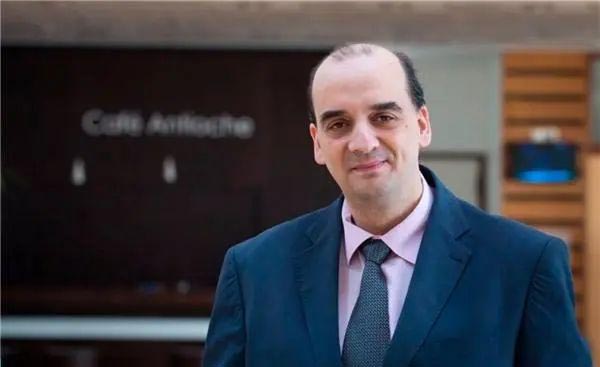In a recent speech, public health expert Konstantinos Farsalinos rebuked the World Health Organization's approach to tobacco control, highlighting its failure to acknowledge the harm-reducing potential of electronic cigarettes. As a renowned cardiovascular specialist at the Greek National School of Public Health and a globally recognized tobacco control expert, Farsalinos emphasized that the scientific community widely agrees on the significantly lower health risks posed by e-cigarettes compared to traditional cigarettes. He accused the WHO of disregarding technological advancements and neglecting harm reduction strategies, resulting in a regrettable increase in the global number of smokers, reaching a staggering 1.3 billion individuals.

Konstantinos Farsalinos, a prominent figure in public health, explained that traditional cigarettes are highly detrimental to health due to the combustion of tobacco, which generates over 4,000 chemical substances, including 69 carcinogens such as tar and nitrosamines. Conversely, e-cigarettes do not involve tobacco combustion, leading to a reduction of up to 95% in the potential harm compared to traditional smoking.
"Over the past decade, extensive research has unequivocally demonstrated the substantial risk difference between e-cigarettes and traditional cigarettes. There is no scientific disagreement regarding the fact that e-cigarettes are significantly less harmful," he asserted. "You don't need to be a scientist to understand the distinction – it's as simple as recognizing that traditional cigarettes burn, while e-cigarettes do not."
However, the World Health Organization appears blind to the harm reduction potential of e-cigarettes. Farsalinos attributed this bias to the WHO's emphasis on political, ethical, and moral considerations rather than scientific evidence. He pointed out that nicotine, a component present in both traditional and electronic cigarettes, is not a carcinogen and has never been included in the global list of carcinogens. Despite this, the WHO has historically conflated the hazards of smoking with the effects of nicotine, inadvertently launching a misguided war against nicotine, while the real focus should be on curbing the harms associated with smoking.
"When we discuss smoking, we are addressing the hazards of traditional cigarettes, the diseases they cause, and the range of public health issues they create. It is not a moral dilemma of whether nicotine products are suitable or not. Public health concerns are not a matter of ethics," Farsalinos stressed during his speech.
The WHO's adherence to "nicotine dogma" not only results in the rejection of harm reduction strategies but also perpetuates bias against e-cigarettes. This prejudice has sparked strong condemnation from multiple public health experts worldwide. Gerry Stimson, Honorary Professor at Imperial College London and Director of the Global Forum on Nicotine, expressed deep concern in 2021, noting that the WHO's distortion of information demonstrates a lack of consideration for smokers' health. Derek Yach, former Assistant Director-General of the WHO, boldly proclaimed in a March 2023 speech that the WHO Framework Convention on Tobacco Control (FCTC) is outdated and must acknowledge the harm-reducing potential of e-cigarettes without embarrassment.
Apart from assisting smokers in harm reduction, e-cigarettes have also shown promise in aiding smoking cessation efforts. The WHO's official terminology for quitting smoking is "Quitting tobacco," and numerous authoritative studies have verified that e-cigarettes, which do not involve tobacco combustion, can alleviate nicotine withdrawal symptoms, significantly increasing the success rate of smoking cessation. This contributes to a decrease in smoking prevalence (percentage of cigarette users among the total population), ultimately leading to a reduction in the global number of smokers.
In the November 2021 report, "Fourth Global Tobacco Trends," the WHO mentioned a current global smoker population of 1.3 billion, slightly lower than the 1.32 billion recorded in 2015. The projection for 2025 is a further decline to 1.27 billion smokers. However, Farsalinos highlighted during his speech that the global smoker population remains at 1.3 billion, indicating the failure of the WHO's tobacco control strategy.

According to him, the WHO should promptly adopt harm reduction strategies and disseminate scientifically accurate information about e-cigarettes to the public. "We possess compelling evidence demonstrating the harm reduction potential of e-cigarettes, and it is our duty to convey this to smokers. Healthcare professionals, in particular, should take responsibility in informing smokers about the reduced risks of e-cigarettes instead of misleading or frightening them. Smokers have the right to know the truth," he passionately concluded.
Despite mounting evidence supporting the harm reduction potential of e-cigarettes, the WHO's reluctance to embrace these findings has garnered criticism from experts like Farsalinos. He stressed that it is imperative for the organization to acknowledge the efficacy of harm reduction strategies and communicate this vital information to smokers. By doing so, they can empower smokers to make informed decisions about their health and potentially transition to a safer alternative.
Farsalinos's advocacy for harm reduction is not unfounded. Various studies have shown that smokers who switch to e-cigarettes experience noticeable improvements in their health. These positive changes include better lung function, reduced exposure to harmful toxins, and a significant decrease in respiratory symptoms. Additionally, e-cigarettes have been proven to be less addictive than traditional cigarettes, offering smokers a potential pathway towards quitting altogether.
Despite the growing body of evidence supporting e-cigarettes' benefits, misconceptions and misconstrued information continue to fuel resistance towards their acceptance as a viable harm reduction tool. Addressing these misunderstandings and promoting accurate, evidence-based information is crucial to fostering a more conducive environment for harm reduction strategies.
Apart from advocating for the acceptance of e-cigarettes as harm-reducing products, Farsalinos emphasized the role of doctors and healthcare professionals in the fight against smoking-related diseases. He believes that healthcare providers should actively participate in providing smokers with the knowledge and support necessary to make informed decisions about their tobacco use.
As we look ahead, it is vital for policymakers and public health organizations, including the WHO, to remain open to the evolving scientific landscape surrounding e-cigarettes and tobacco harm reduction. The ability to adapt strategies based on evidence, rather than dogma, will ultimately determine the success of global efforts to combat tobacco-related diseases and reduce smoking rates.
In conclusion, public health expert Konstantinos Farsalinos has boldly criticized the World Health Organization's refusal to acknowledge the potential harm reduction benefits of e-cigarettes. Supported by scientific consensus, Farsalinos argues that e-cigarettes present a significantly less harmful alternative to traditional cigarettes. As the global number of smokers remains alarmingly high, embracing harm reduction strategies and disseminating accurate information about e-cigarettes is crucial in curbing the tobacco epidemic and saving millions of lives.
It is time for public health organizations and policymakers to prioritize evidence-based strategies and empower smokers with knowledge to make informed choices. By doing so, we can move towards a healthier future where harm reduction plays a pivotal role in reducing the burden of tobacco-related diseases. Only through collaboration and openness to scientific advancements can we achieve significant progress in the global fight against smoking and its associated health risks.
